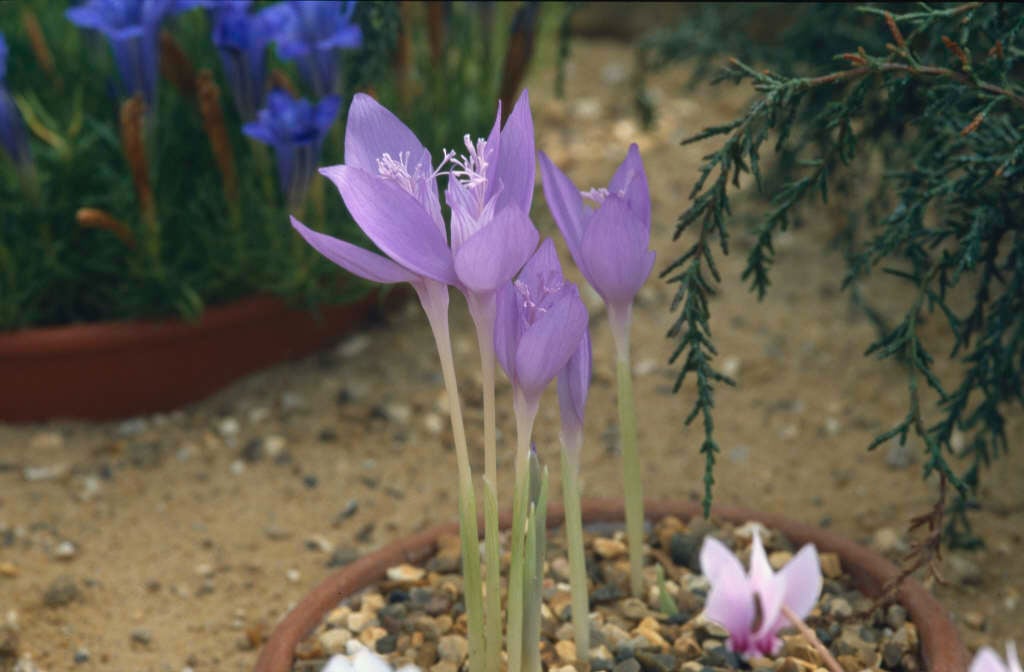Crocus banaticus

Byzantine crocus
A perennial corm with lilac to light purple flowers produced before the leaves in early autumn. Inner tepals much smaller than outer ones, which reflex in strong sun

Buy this plant
Size
Ultimate height
Up to 10cmTime to ultimate height
2–5 yearsUltimate spread
0–0.1 metreGrowing conditions
Moisture
Well–drainedpH
Acid, Alkaline, NeutralColour & scent
| Stem | Flower | Foliage | Fruit | |
| Spring | ||||
|---|---|---|---|---|
| Summer | ||||
| Autumn | Purple | Green | ||
| Winter |
Position
- Full sun
- Partial shade
Aspect
North–facing or West–facing or South–facing or East–facing
Exposure
Exposed or Sheltered Hardiness
H6Botanical details
- Family
- Iridaceae
- Native to GB / Ireland
- No
- Foliage
- Deciduous
- Habit
- Tufted
- Potentially harmful
- Ornamental bulbs - not to be eaten. Wear gloves and other protective equipment when handling. Pets: Ornamental bulbs - not to be eaten - see the HTA guide to potentially harmful plants for further information and useful contact numbers
- Genus
Crocus are dwarf, deciduous perennials growing from a corm, with linear leaves usually with a silvery central stripe, and goblet-shaped, sometimes fragrant flowers in autumn or early spring
- Name status
Correct
- Plant range
- E Europe
How to grow
Cultivation
Grow in a moderately fertile, humus-rich, moderately well-drained soil. See crocus cultivation for more advice
Propagation
Propagate by seed, sown in pots in a cold frame when ripe or remove cormlets when dormant
Suggested planting locations and garden types
- Gravel garden
- Patio and container plants
- City and courtyard gardens
- Rock garden
- Wildlife gardens
- Flower borders and beds
Pruning
No pruning required
Pests
May be susceptible to rodents and birds
Diseases
Generally disease-free, corms may rot in storage
Love gardening
Sign up to receive regular gardening tips, inspiration, offers and more
View our Privacy Policy
Get involved
The Royal Horticultural Society is the UK’s leading gardening charity. We aim to enrich everyone’s life through plants, and make the UK a greener and more beautiful place.